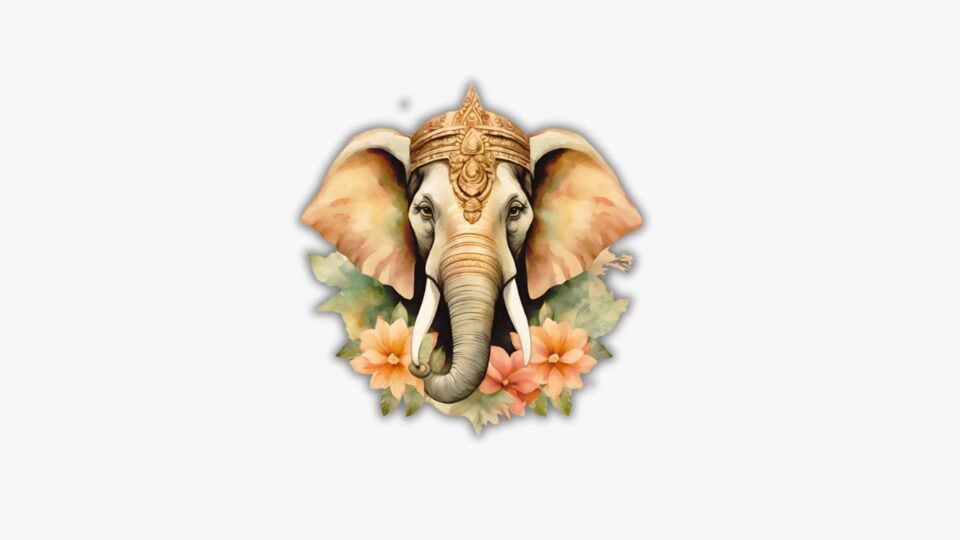Shivam Vipul Purohit, India:
Health goes beyond just the absence of illness. It is the delicate balance of physical vitality, emotional harmony, and spiritual well-being. Across different cultures and traditions, both ancient teachings and modern science highlight the strong connection between karma, thoughts, emotions, and overall well-being. This insight serves as the basis for holistic healing, where practices come together to nurture every aspect of human existence.
Karma’s influence on health
Karma, the law of cause and effect, suggests that our actions, thoughts, and emotions create imprints that influence our future. The Bhagavad Gita and many spiritual traditions emphasise that karma isn’t punitive but rather a means of self-correction. Our unresolved emotional and mental patterns often manifest as physical imbalances in the body, acting as signals for deeper reflection and growth.
For example, suppressed guilt often presents itself through gastrointestinal problems, such as bloating or irritable bowel syndrome (IBS). Similarly, resentment can disrupt the harmony of the heart chakra, potentially leading to cardiovascular issues. These signs are not random but rather opportunities to confront the karmic energies embedded within us.
Karmic healing requires conscious effort to align our actions with higher values, embrace forgiveness, and engage in practices that restore emotional balance. Meditation, prayer, and introspection are pivotal in dissolving negative karmic imprints and re-establishing harmony in the body and mind.
Thoughts and their impact on health
Our thoughts hold immense power over our physical well-being. Negative thought patterns—such as chronic fear, anger, or stress activates the hypothalamic-pituitary-adrenal (HPA) axis, which governs our stress response. Over time, this leads to the continuous release of cortisol, a hormone that weakens the immune system and increases inflammation, contributing to conditions like hypertension and diabetes.
On the other hand, positive thoughts have the ability to boost health. Practices such as gratitude journaling, affirmations, and mindfulness meditation help release serotonin and dopamine, neurotransmitters that elevate mood and promote relaxation. Ancient texts like the Yoga Sutras of Patanjali emphasise mental discipline as the foundation for both spiritual peace and physical health.
For example, shifting our thoughts from worry and fear to appreciation and love can improve both mental and physical health. These positive shifts not only bolster emotional well-being but also fortify the immune system, reduce inflammation, and reduce the risk of chronic diseases.
Emotional states and physical illness
Emotions significantly impact physical health, a connection acknowledged in both Ayurveda and modern psychosomatic medicine. In Ayurveda, emotional imbalances can directly influence the doshas, or the body’s energies. For example, deep grief may contribute to respiratory issues, while long-standing anger can result in digestive or cardiovascular problems.
Modern medicine also recognises the powerful link between emotional health and physical illness. Chronic stress, emotional repression, and unresolved trauma can manifest in various ways, from autoimmune diseases to chronic pain. In fact, research has shown that emotional trauma, especially when unprocessed, can contribute to conditions like arthritis, chronic migraines, and even cancer.
Healing emotional wounds requires addressing the root causes of these emotions. Practices like breathwork and yoga asanas, such as Navasana (boat pose), can help release emotional blockages and restore the body’s balance. Techniques like loving-kindness meditation and forgiveness exercises promote the emotional release necessary for healing.
Holistic healing: Combining practices A holistic approach to health takes into account the entire person—body, mind, and spirit. This approach integrates both ancient wisdom and contemporary healing methods, offering a comprehensive pathway to wellness.
1. Yoga and conscious movement:
Practices like Yoga Nidra (yogic sleep) and specific asanas (yoga postures) help facilitate emotional release. Yoga postures, such as Navasana (boat pose), are known to help release emotional tension, especially in the abdominal region, which is linked to the digestive system. These movements balance the nervous system, reduce chronic pain, and enhance physical well-being.
2. Sound therapy:
Mantras and sound healing have been used for centuries to restore balance in the body. Chanting mantras like Om or listening to Tibetan singing bowls can promote emotional release and reset the body’s energy frequencies, encouraging relaxation and healing.
3. Aromatherapy:
Essential oils like lavender, frankincense, and sandalwood have been used across various healing traditions to calm the mind and uplift the spirit. Research shows that certain scents can promote relaxation, reduce stress, and even boost immunity, supporting both emotional and physical healing.
4. Prayer across cultures:
Prayer is a universal practice that transcends cultural boundaries. Whether through mantras in Hinduism, contemplative prayers in Christianity, duas in Islam, or chants in Buddhism, prayer fosters a sense of connection with the divine. Studies have shown that prayer helps reduce stress, enhance emotional resilience, and provide comfort during difficult times.
5. Energy healing modalities:
Energy healing techniques, such as Reiki, chakra therapy, and therapeutic touch, focus on clearing blockages in the body’s energy system. These practices can complement medical treatments, helping to alleviate emotional pain and promote physical healing.
6. Intuitive practices:
Intuitive reading methods, like Rune spreads, can provide valuable insights into personal challenges. Runes, rooted in ancient traditions, help individuals reflect on their life’s journey, gain clarity, and facilitate emotional healing. The process can bring light to unresolved feelings, helping to clear emotional obstacles that hinder physical well-being.
A holistic path to health Genuine healing transcends merely addressing physical symptoms. It encompasses a profound, transformative journey that harmonises the mind, body, and spirit. Ancient texts, such as the Bhagavad Gita, suggest that illness and suffering are often opportunities for introspection and growth, urging us to address the imbalances that affect both our inner and outer worlds.
By addressing not only physical symptoms but also emotional and spiritual imbalances, individuals can experience holistic healing. Practices like meditation, forgiveness, yoga, and prayer allow for a deeper connection to the self and the divine. They provide pathways to heal unresolved emotions, cultivate gratitude, and embrace personal growth.
The holistic path to health reminds us that wellness is a process of continuous self-evolution. Healing is not about fixing what is broken but rather about returning to a state of balance and wholeness. The combination of mind-body practices, energy healing, and spiritual reflections helps us move toward a place of peace, acceptance, and vitality.
Closing thoughts Health is not simply the absence of disease but a vibrant state of harmony between the body, mind, and spirit. By embracing a holistic perspective, one that integrates karma, thoughts, emotions, and spiritual practices, we move beyond the surface of symptoms to the deeper causes of imbalance. This journey toward health is a sacred one, guiding us toward transformation, self-awareness, and connection with the greater universe.
Incorporating practices such as prayer, meditation, energy healing, and mindfulness, we can achieve a state of wellness that nourishes the soul, balances the mind, and heals the body. Holistic healing offers a transformative path, empowering individuals to take charge of their well-being while aligning with the divine flow of life.
About the author
This article has been authored by Neelkanth D. Joshi,a seasoned structural consultant whose expertise lies in designing and optimising physical structures. Beyond his professional accomplishments, he is deeply passionate about spiritual healing and the interplay between the mind, body, and spirit.With heartfelt gratitude to Lord Ganesha for guiding his journey, his Spiritual Guide Acharya Shri Anil Vatsji and to his Rune teacher, Shahin Ashraf Ali, for imparting ancient wisdom, Neelkanth has embraced a path that blends the transformative power of prayer and the intuitive insights of Runes with modern perspectives.Through his writing, Neelkanth offers readers a unique synthesis of logic and intuition, providing practical insights to achieve emotional and physical harmony. To know more, visit https://www.ganasattva.com
Read This Also અદાણી જૂથ કેરળમાં ₹ 30,000 કરોડનું રોકાણ કરશે, કેરલ ગ્લોબલ સમિટમાં જાહેરાત


